The Traitors: Season 2 Burning Questions, Answered!
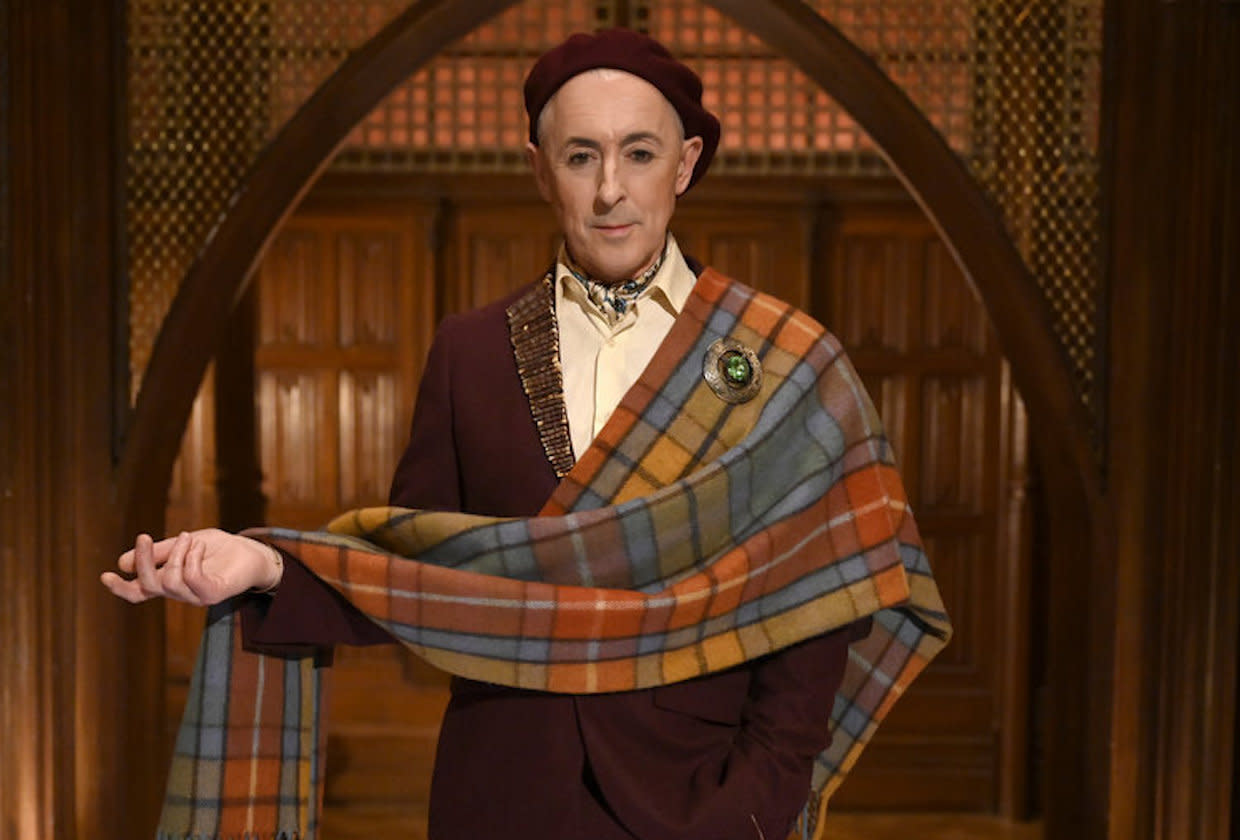

Season 2 of Peacock‘s The Traitors has had us glued to the edge of our seats, trying to figure out which celebrity players will survive until the end. But that’s not the only mystery we want answered.
More from TVLine
The Traitors Recap: Did Kate Accept Phaedra's Offer to Become a Traitor?
TVLine Items: Tattooist of Auschwitz Trailer, Eva Longoria Joins Only Murders and More
The addictive reality competition — which pits players against each other in a remote Scottish castle as they try to determine which of them are the “traitors” who are eliminating a new player each night — has become such an obsession for us that we want to know more. How long are the players actually in the castle? What do they do all day? And why does Alan Cumming make such a terrific host? (Well, we all know the answer to that one: It’s the clothes.)
TVLine recently sat down with Cumming, returning player Kate Chastain and executive producers Sam Rees-Jones and Stephen Lambert to find out more about how The Traitors is made and what makes it so fiendishly watchable — and they gave us answers to some of our biggest burning questions about the show. So if you’re as hooked as we are, read on and enjoy. (Plus, if you have more questions about The Traitors — or just some Season 2 predictions — drop ’em in the comments below.)
Why Did Producers Bring Kate Back… and So Late in the Game?
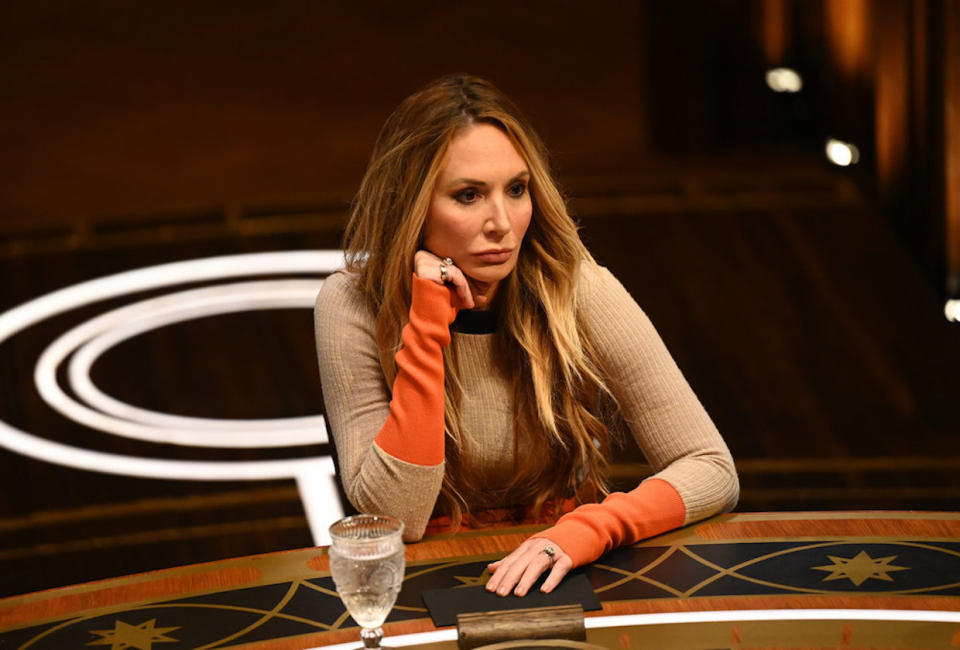
Chastain may have returned to the show five episodes into Season 2, but as Rees-Jones tells it, her return was always planned to be a midway twist that would give the season a little boost.
“It was a discussion that we had with the network and the feeling was that she would have different, fresh eyes,” he tells TVLine. “She didn’t play the perfect game in Season 1, so it wasn’t like bringing back a mastermind. It wasn’t like bringing back Cirie.”
He added during the show’s Television Critics Association panel: “Kate actually had unfinished business from Season 1 and she was a fan favorite. We enjoyed spicing things up, having a little bit of a lift. And she’s phenomenal on television as well. Also, we want to keep the players always guessing what’s going to happen next. It’s a murder mystery at the end of the day, so we enjoyed Kate arriving halfway through.”
“I was definitely caught off guard,” Chastain tells TVLine about getting a call to possibly return. “I said, ‘Did you watch the first season? Are you sure you got the right number? This is Kate Chastain. I think you’re calling a different Kate.’ They said, ‘Think about it,’ and I just thought it was such an honor to even be invited back a second time. We worked it out. I found a nanny for the baby. It was such an honor to be asked back.”
What Happened to Deontay?
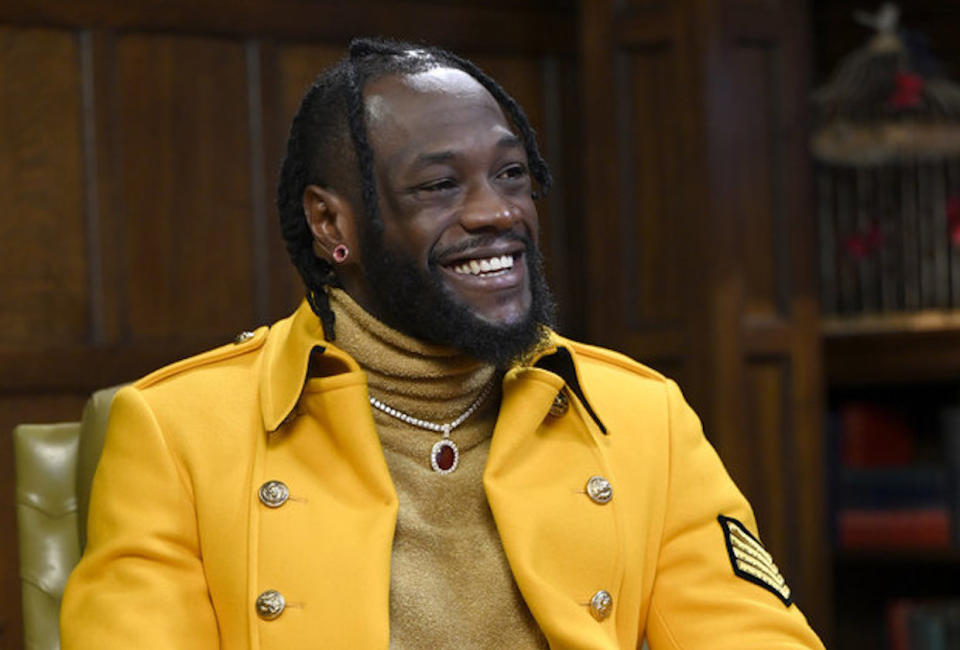
Sometimes The Traitors‘ treachery is simply too much to bear, and in Episode 4, pro boxer Deontay Wilder walked away from the show. But his voluntary early exit wasn’t clearly explained, leaving viewers to wonder what the rest of the story was.
“I think just the game can be too much for some people,” says Rees-Jones. “And that’s basically the story for Deontay. But I thought he was a good player. I actually thought you saw a really different side of him, which I loved. Although he was only there for a few episodes, I think seeing that different side and what the game can do to a different person is nice to see.”
“I think he found it quite difficult being in a roundtable and banishing people who turned out to be faithful when he thought they were traitors,” adds Lambert. “That can be quite a disorienting experience.”
What’s the Production Schedule Like?
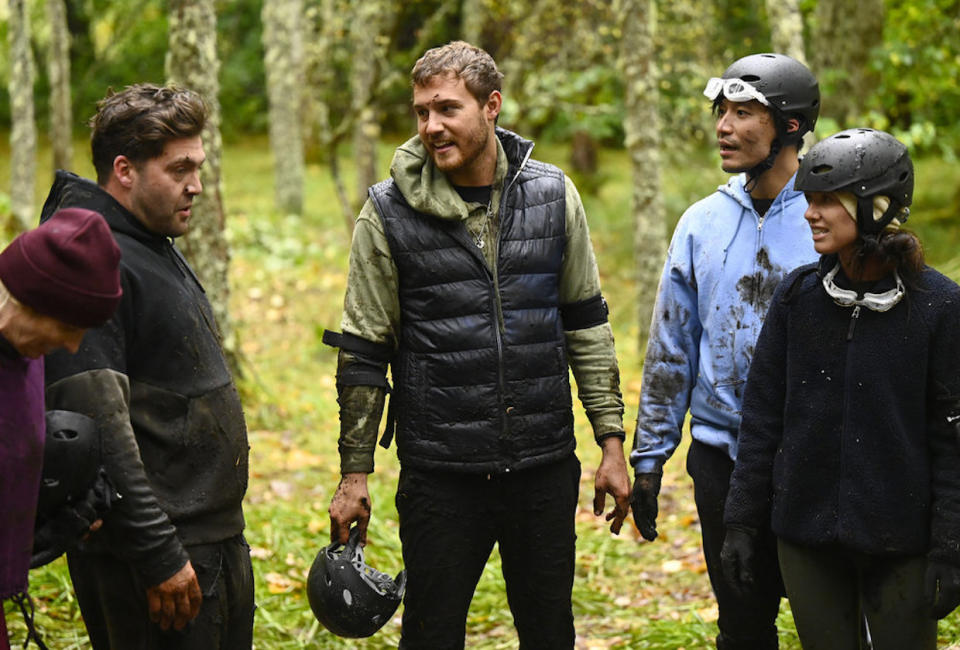
As Chastain tells us, the total span of filming is just under four weeks, which means that when the cast is on location at the castle, the game is moving at lightning speed. And with so much happening on any given day — from breakfast, the mission and strategic chats straight on through to the roundtable — a lot is left on the cutting room floor.
“There’s so much they can’t show. There’s just only so much room,” she says. “Even when I’m watching the new episodes, I’m excited to see what made it. But certainly, the roundtables go on for an hour and a half, and I love that. That’s my favorite part. I was on the debate team in college, which I really feel like prepared me well for this.”
With all of that time on set (counting when the cast is eating breakfast or plotting each other’s demises), host Alan Cumming stays busy, all while keeping an eye on the action.
“I’m busy getting ready, makeup and hair,” Cumming tells TVLine. “I do have a screen in my room with all the feeds of all the cameras. Especially in the morning, when it’s the breakfast bit, it’s very important to me just to kind of size up the mood in the room, so I’m listening to what they’re saying. But then I prep for the mission. There’s a lot of things I’ve got to be aware of. They show me little maps: ‘Take them here.’ And then I’ve usually got the script meetings before the next thing. And then you’ve got the mission. Then there’s a little gap, that’s when I used to go take [my dog] Lala out for a walk when we get back. That’s when they do the reality stuff.”
But even after what seems like a full day’s work, Cumming partakes in even more prep, meeting with producers before heading into the night’s banishment ceremony. “They come and talk to me about what the mood is about going into the roundtable because sometimes you have to sort of steer things,” he says. “They’re long days, but by the time that’s finished, I go home. But then the traitors go to their turret, and I can’t go to sleep until [EP] Sam [Rees-Jones] texts me who’s murdered.”
Production keeps a tight six-day work week, with two or three days off in between, Cumming says, one of which is filled with press obligations. He adds: “Basically, I am as immersed in this show as the contestants are. I don’t have a chance to do anything else except be obsessed with it.”
How Did Alan Perfect His Role as Host?
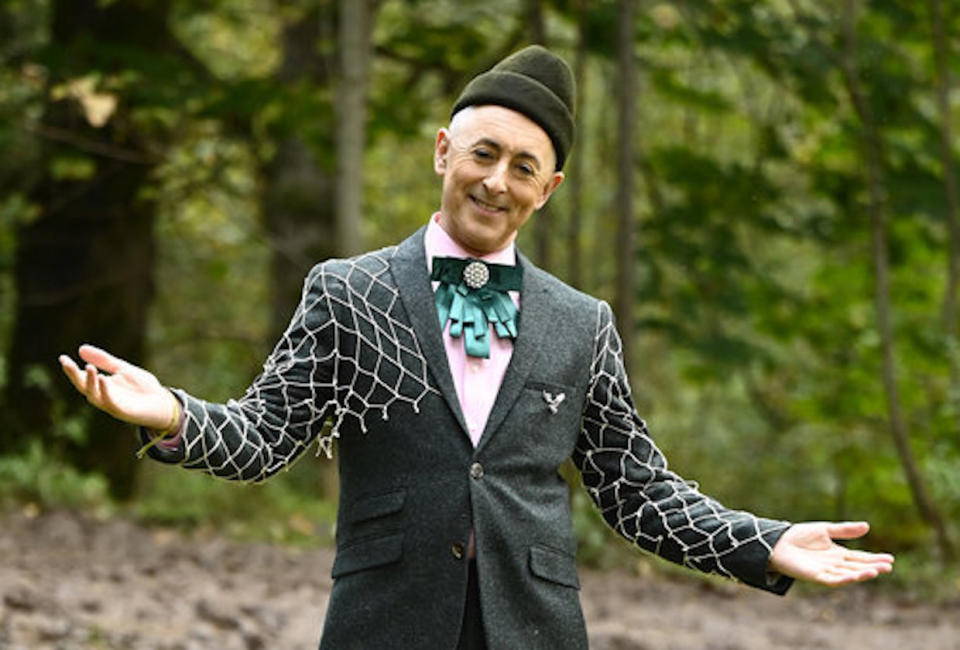
Like the great actor he is, Cummings fashioned his very own character to host. “I feel like I’m playing a character,” he told reporters during the TCA panel. “I don’t really sound like that. I don’t live in a castle. So I’ve made it like I’m acting a part.”
“I think of it as like a 1970s film, like Clue or something,” he tells TVLine. “One of these things where: ‘I’ve invited you to my castle.’ There’s a logic to it that you’re this Machiavellian person petting your dog, who’s invited all these people for some weird reason. So it’s sort of building on that notion of a kind of dandy Scottish lord. Slightly James Bond villain, those ’70s sort of films set in remote locations.”
Even his crafty dialogue is meticulously planned.
“I also wanted to drop in all these quotes that are theatrical, Shakespeare play quotes,” he adds, “[while] also being quite stern. I’ve got to maintain this distance with the contestants, so I can shame them and be angry with them. And also at the roundtable, often it gets out of control and I’ve got to step in sort of and say… a lot of stuff that you don’t see. Sometimes I’ve got to have an authority, I suppose, as a host does. So it’s all those elements and then trying to make a whole person out of it, who is also this sort of fashion clotheshorse type at the same time.”
Why Did the Show Move From a Binge Drop to Weekly Episodes?
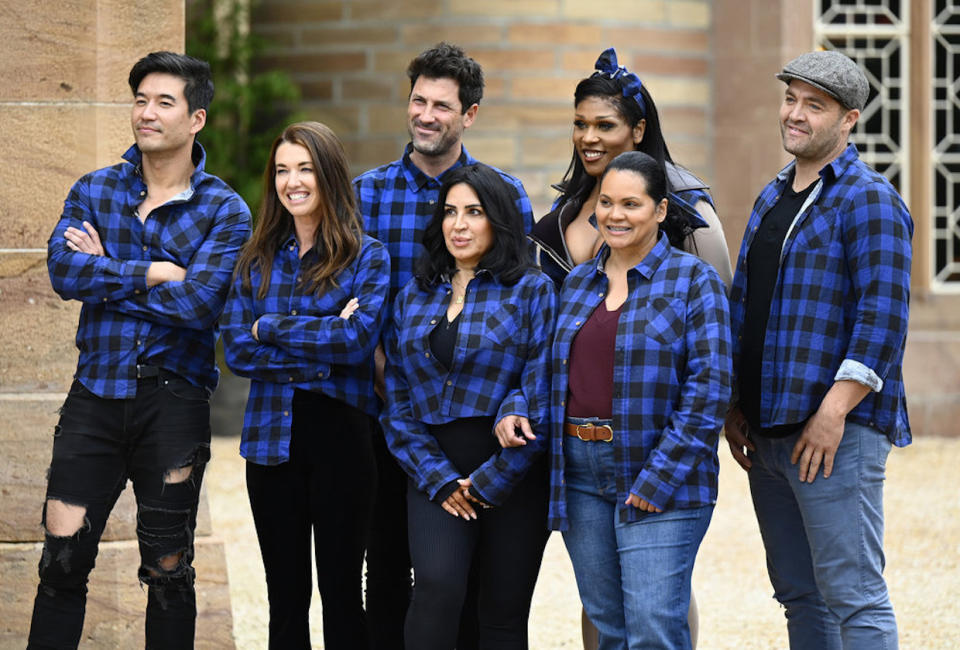
While Peacock has opted for a weekly release schedule for Season 2 (differing from Season 1’s binge drop), it’s unclear whether they’ll stick to this schedule moving forward. However, Lambert offers us a bit of insight as to why the change in the show’s release schedule was made.
“A lot of streaming platforms like to put all their episodes up straight away. I think that there was quite a bit of feedback that, ‘This is the kind of show that would be great to be watching as a community, that I want to feel that others are going through this experience with me on social media’ or whatever,” Lambert tells TVLine. “So I think [Peacock], at that point, decided to try the weekly approach. The first three episodes were dropped at once, and from what we hear from them, they seem to feel it’s worked. I don’t know whether they’ll do the same again next time, or whether they might try a little bit of batching, but I definitely think that a show like this benefits from not all being dropping at once. In the UK, the BBC would drop three a week. The whole thing is over in four weeks. So you do get that sense of everybody talking about it, but at the same time, they don’t have to wait the whole week for the next episode.”
Does Alan Have a Say in Selecting the Traitors?
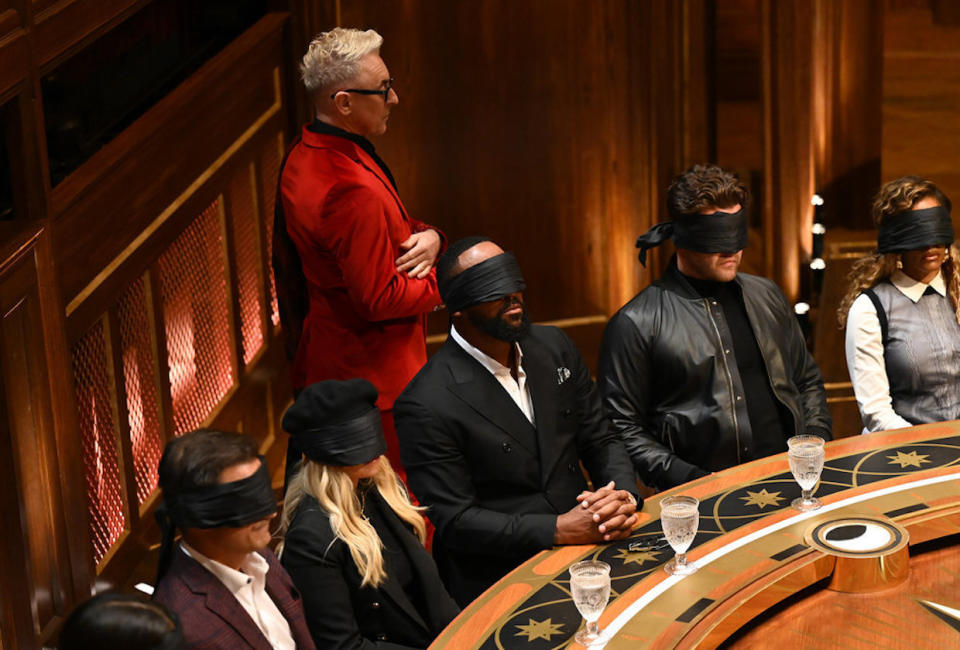
The short answer: Yes.
Said Lambert at TCA: “We’re looking for people who want to be a traitor and who can pull it off. It’s a lot more pressure being a traitor than it is being a faithful. And so you’re making an assessment as to who’s got the personality to do it. And then, what’s the right combination?”
“We do a personality test with everyone before they go in, which gives us a bit more of an idea of if they could take it on,” said Rees-Jones. “It’s hard. It’s taxing. Alan has chats with them, which we didn’t do in Season 1. Those chats actually gave us a lot of information as well. We didn’t actually pick who the traitors were until a couple of hours before the roundtable when Alan taps them on the shoulder. So we’re seeing how they are on that first day as well. So all of that, and Alan’s opinion as well, all goes into us picking them.”
And when it comes down to Alan circling the roundtable and tapping the new traitors on the shoulders, the pressure is on.
“It’s the most terrifying part of the whole series for me because I could f–k it up hugely by just banging someone with my elbow,” said Cumming. “And there was one more [cast member] than last year, wasn’t there? So they were more squashed at the table. So, to get my arm… it was kind of like a gym exercise.”
“And then I have Sam in my ear in the control room, and I was very aware of the tension,” he added. “The contestants are all really tense and anxious. My heart is pounding. But I do all these tricks to sort of confuse them, stop and walk back, and do things with my arm.”
“It was Johnny Bananas that was right next to Phaedra,” said Rees-Jones. “You’ve got to be so careful. Johnny Bananas is going to feel it, any little movement.”
Why Is Season 2 All Celebrities Instead of Civilians?
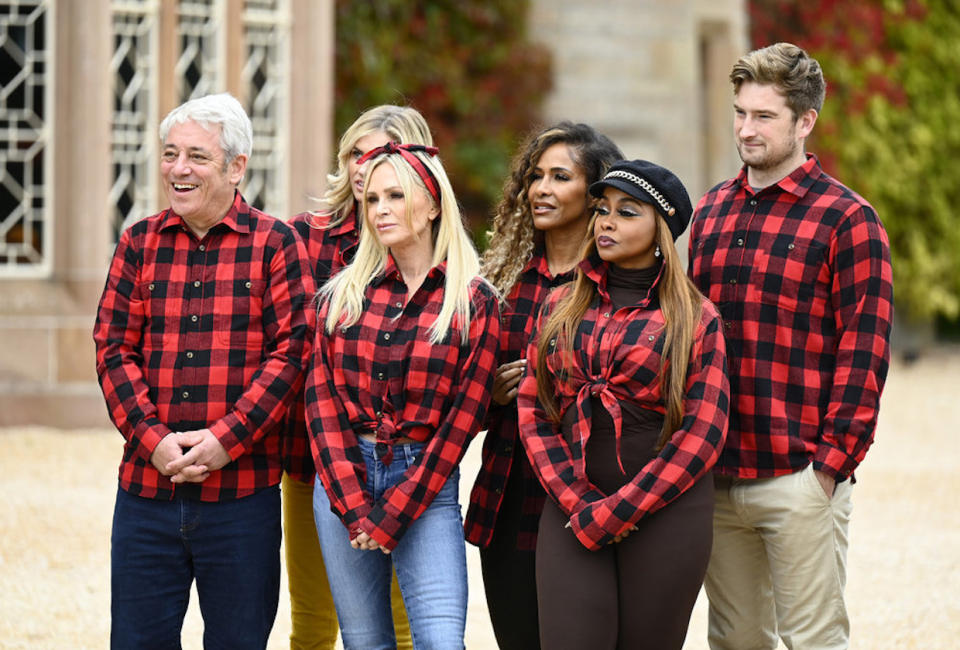
While Season 2 has eschewed the casting of civilian players, producers aren’t certain that’ll be the norm for every season moving forward.
“We could do an all-civilian one,” Lambert tells TVLine. “I think the reason we went down different routes in Britain and America is America is so competitive in terms of the number of networks and platforms, and having people that the press could write about and the audience knew about gave it a greater chance. But your biggest unscripted shows are ones with ordinary people, whether it’s Survivor or Big Brother or whatever. So it’s not like you have to have famous people for the show to work. And I think once The Traitors becomes even more established, it’s obviously a network decision, but it’s not mad to think that one would work with civilians. The biggest benefit you get with civilians is A) there’s a kind of innocence about them, and B) the money really does matter.”
“Nothing’s off the table,” said Rees-Jones during the show’s TCA panel. “Who would’ve thought that we’d have a former politician from the UK in the same castle as a boxing heavyweight champion? I think that the beauty of The Traitors is that anyone can join from any sort of walk of life. I think that’s brilliant. And to see how Kate Chastain plays it against a Big Brother person is fascinating. And they all pull different things and have different strengths that they bring into the game.”
Why Doesn’t the Show Hide the Traitors’ Identities From Viewers?
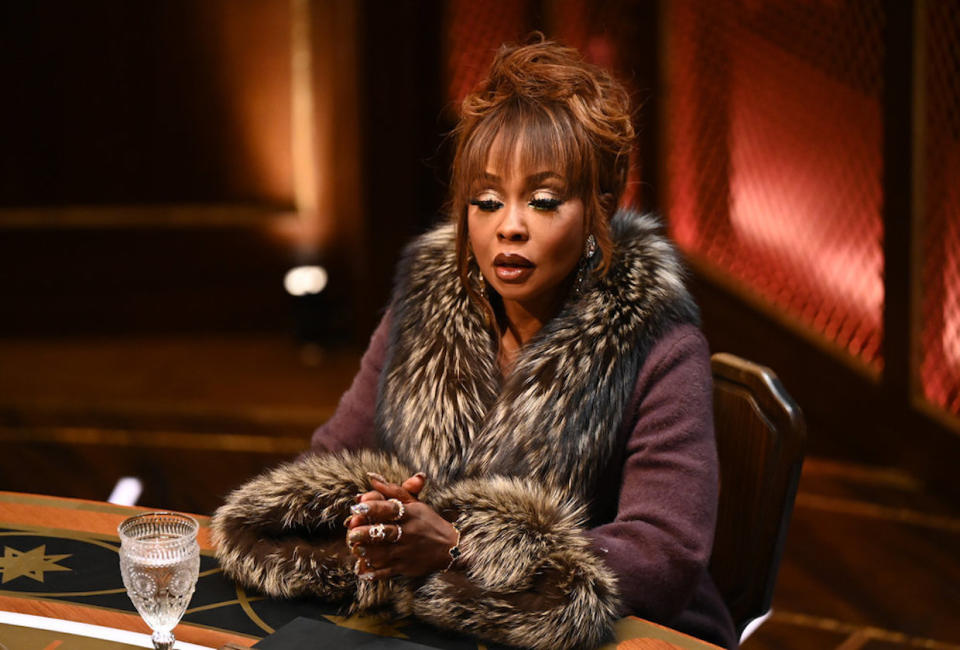
Ever wonder why the show tells us who the traitors are? Not only was it created that way by design, says Lambert, but in a way, it puts the power squarely in our hands.
“I don’t think the idea of a show where you don’t know who the traitors are would work so well,” he said during the TCA panel. “We had that with the show The Mole. And I think you end up watching a show where you feel all the time that you’re being misled by editing, and I think that what’s so strong about this format is the fact that we are giving viewers this sort of dramatic irony of feeling all-powerful because they know who the traitors are, and the enjoyment that comes from watching what’s going on and thinking, ‘Why can’t the faithful work it out? It’s so obvious.’ I know that when the format was originally devised in Holland, the people who created it found it very difficult to sell it because a lot of buyers thought that’s never going to work, you’re giving away who the traitors are. But, actually, I think it’s the genius of it.”
Best of TVLine
The Best Streaming Services in 2024: Disney+, Hulu, Max and More
What's New on Netflix in January — Plus: Disney+, Hulu, Amazon and Others
Get more from TVLine.com: Follow us on Twitter, Facebook, Newsletter


